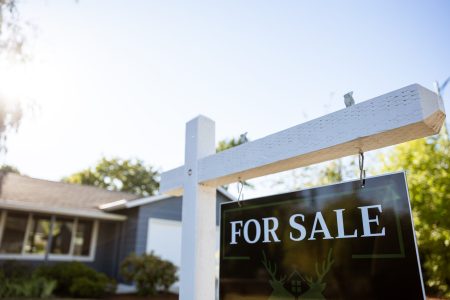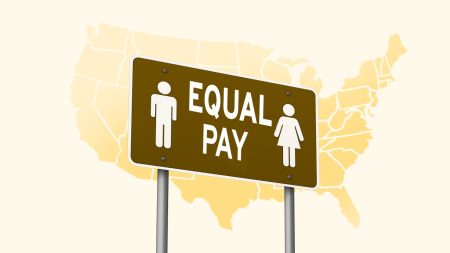Key takeaways
- Renting is more affordable than paying a mortgage in most regions across the U.S.
- The high cost of housing is easier to afford for households with multiple people — and thus multiple incomes.
- For single people, who have only their own income to work with, renting might be the only viable housing option.
Rising housing costs have been felt by renters and homeowners alike, but single-person households may be feeling the brunt of it. It’s cheaper to rent than buy in all 50 of the largest U.S. metros, according to Bankrate’s recent Rent vs. Buy Affordability Study — and for single people, with only one income, that often makes renting the more viable choice, or maybe even the only viable choice. In the housing world, this phenomenon is sometimes referred to as a “single-person penalty.” Here are some key insights from Bankrate employees across the country who rent on their own, eschewing homeownership — at least for now.
Renting makes more financial sense than buying for single people
Housing unaffordability has accelerated at an extreme rate since 2020, but mortgage prices have increased much more than rental prices — in fact, the cost difference between renting and paying a mortgage grew in more than three-quarters of the metro areas analyzed (38 out of 50). The study found that the average mortgage payment in the U.S. now costs 38 percent more than the average rent.
For senior editor Amelia Buckley, buying a home in her city of Bozeman, Montana, is out of the question at the moment. “Bozeman housing costs have skyrocketed since the pandemic, so buying just isn’t financially feasible for me,” she says. “If I were living with a spouse or long-term partner, I think I would at least keep a closer eye on the market — especially the condo market, which is more reasonable around here.”
Buckley is right about her hometown housing prices: Redfin data shows that the median sale price for a single-family home in Bozeman is $715,000, compared with just $472,500 for a condo or co-op.
Across the country in Charlotte, North Carolina, product manager Shawn Gaetano has seen that market’s rapid growth result in a lack of lower-cost options. “Charlotte is the most expensive place I’ve lived for quite literally the least amount of space over the last four years,” says Gaetano, who has rented in four different cities.
Living with others can help with affordability
A household of one means no spouse or roommates to share the housing burden. “I’ve certainly had to pay the single-person penalty, since I haven’t had roommates since 2020,” says Gaetano.
Whether it’s living with family, roommates or a partner, sharing space with others can ease the financial burden considerably — or even eliminate it, in the case of living rent-free with parents or relatives. But differing schedules and preferences around noise, lifestyle and cleanliness can make these living situations difficult.
Unlike Gaetano, Buckley lives with roommates in what she calls a “pretty ideal” situation — they’re friends who own the home and cut her a deal on rent. Not everyone is lucky enough to have a setup like this, but for her, it’s the perfect spot to be in right now, and it’s helping her avoid some of the single-person penalty.
Renting offers financial predictability
Predictability is another consideration when choosing to rent or buy a home. For single renters, not having to worry about fluctuating tax, insurance and maintenance costs adds certainty around their housing budget.
For New York City–based managing editor Hanna Horvath, living as a single renter makes the most financial sense. “In NYC, it’s typically not worth it to buy when you factor in maintenance fees and other hidden costs,” she says. “There are so many unforeseen expenses people don’t talk about. The mortgage is just the minimum you’ll pay each month.”
Gaetano echoes this sentiment, saying it’s nice to know that his rent price (plus utilities) is the maximum he’ll pay every month. “Renting is relatively stress-free and does have its perks,” he says. “There are no variable property taxes. If an issue arises, [just] call maintenance.”
Renting can save time, not just money
The variables of homeownership also apply to the size of your time commitment. “I was a homeowner for nearly nine years, and during that time, I put hours each week into maintaining and improving my property,” says editor Johna Strickland, who’s based in Boise, Idaho. “I stressed over paying for expensive repairs and projects. I spent thousands, both in dollars and hours of my time. After I sold, I wasn’t willing to make that time and financial commitment again. I wanted to live a life where someone else worries about the busted pipe.”
Lifestyle can also make renting more appealing
Major life changes — like marriage, divorce, children and more — can often mean that other things take priority over homeownership, making renting a more appealing option. For senior engineer George Redenz, being a homeowner didn’t make sense anymore after his relationship ended.
“I sold my home in Michigan as the result of a relationship breakup and moved back to Chicago, where my family lives,” says Redenz. “I’m 50 years old. The high cost of housing and the fact that I’m closer to retirement made a 15-year loan unaffordable and a 30-year loan risky. So, I decided to just rent instead.”
Even so, Redenz is looking into moving in with his girlfriend once their current leases are up. It doesn’t make financial sense to each rent individually when they could split the cost, he says.
Homeownership is still a goal for many single renters
While renting may be a long-term option for some, plenty of single renters still have aspirations of owning a home someday. In fact, Bankrate’s 2025 Home Affordability Study found that 82 percent of U.S. adults say that owning a home is part of the American dream.
“Homeownership is definitely a goal for me in the next five to 10 years, but I’m not in a rush,” says Buckley.
For Gaetano, there’s a keen awareness that rent amounts tend to rise every time you renew your lease. “The difficulty of rental prices increasing is that it significantly impacts the ability to save for a down payment on a house,” he says. “Twenty percent of $350,000 is $70,000 — that’s a huge chunk of money to try to save up for as a single renter!”
In order for many individual renters to be in a position to buy, something will have to change — in their life, their location, their income or the housing market itself. Until then, they’re paying rent and enjoying the single life.
Read the full article here









